Premium Only Content
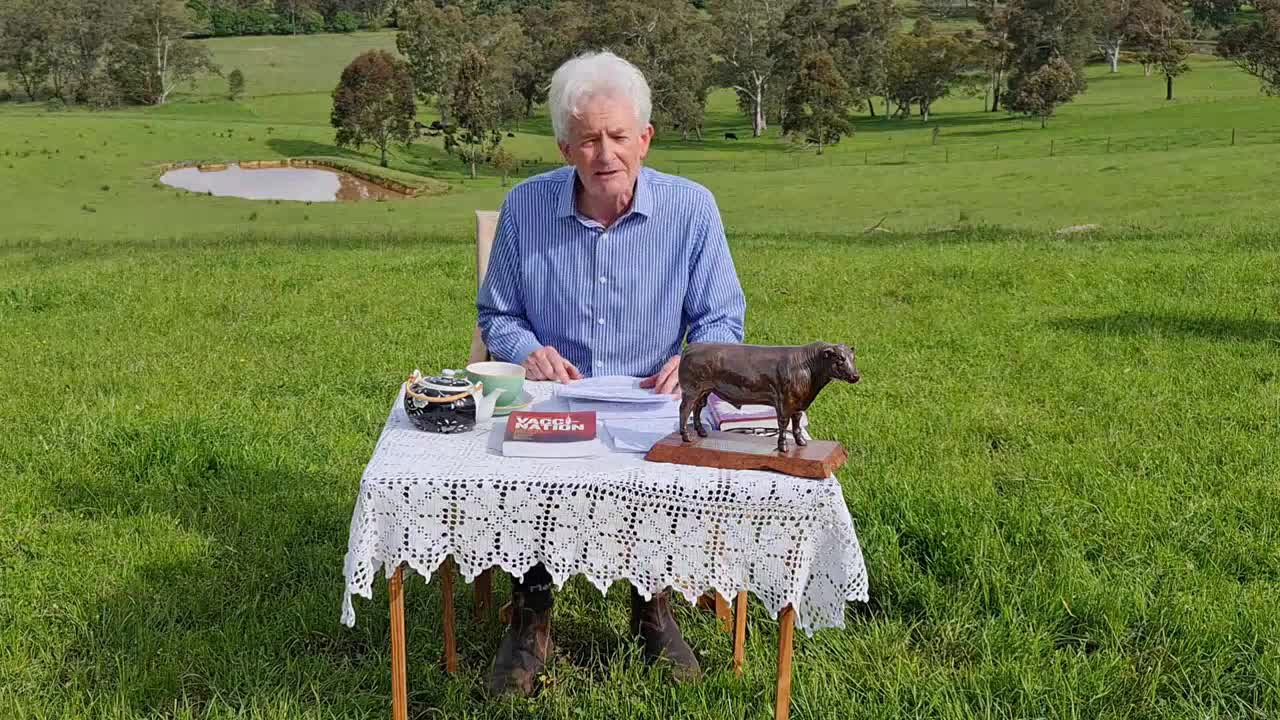
Courage out of shadows and ashes in the time of Covid Or Eliot, Durrell, Tennyson By Graham Lyons
https://alor.org/Storage/Library/PDF/Lyons_G-The_Light_Australia_Article.pdf
This is the centenary of US poet TS Eliot's The Waste Land, published in 1922, along with James Joyce's "stream of consciousness" novel, Ulysses. The Waste Land was a prescient work, one of its themes being the decline of "Western" civilisation. A century on, I believe we are witnessing its final, accelerated phase.
Eliot's principal metaphor is a desert-like wasted land which presents "a heap of broken images"...where the sun beats...and the dead tree provides no shelter. All that can be revealed to the "Son of man" is "fear in a handful of dust", from the famous passage (which I have always found fascinating, albeit disturbing):
And I will show you something different from either
Your shadow at morning striding behind you
Or your shadow at evening rising to meet you;
I will show you fear in a handful of dust.
What does Eliot mean by this? A sinister suggestion of death, mortality, and the ultimate futility of all human endeavour? Is it derived from Ecclesiastes 3: 20: "All go unto one place; all are of the dust, and turn to dust again", hence an invitation to ponder mortality? Is he referring to physical existence undermined by a fear of death? An all-consuming fear that drives humanity to destroy humanity, as witnessed in the industrial slaughter of “The Great War” several years before, resulting in wasted land and spiritual emptiness?
Or is it the essence of his metaphor of civilisational decline? Which we now see writ large in the combination of a stupefied, soul-destroying bread-and-circuses popular culture and the zealous determination of the minority (but powerful) woke "elites" to deconstruct and cancel what remains of a once rich and glorious cultural heritage.
More specifically, I think "fear in a handful of dust" signifies that sense of nameless dread that can arise without an immediate cause. Anyone who has not experienced such a sense of impending doom at some time during this past almost three years has not been paying attention!
This reminds me of the final chapter of Lawrence Durrell's Mountolive, my favourite novel. The author describes the mounting unease of Narouz, the Egyptian Coptic squire, on his vast estate near Alexandria, as he realises that he is in mortal danger: the corrupt government has sent a team of assassins to kill him, and we can make the link with “our own” (not!) governments, corrupted by the globalists, which have turned against us and are trying to kill and injure us with the poison quax.
The day of his death was like any other winter day at Karm Abu Girg; or if it was different it was only in one small and puzzling detail, the significance of which did not strike him at first: the servants ebbing away to leave him alone in the house...
Once last week Ali had reported the presence of unknown men upon the land, but he had not given the matter a thought. Often a stray Bedouin took a short cut across the plantations or a stranger rode through the property bound for the road to the city...
Here he dismounted to take some cuttings which he wrapped and stowed carefully. Then he straightened up for he had heard the sounds of movement in the green glades around him. Difficult to identify, to isolate - slither of a body among the leaves, or perhaps a pack-saddle catching in a branch...
The noise again. A water-rat plopped into the channel and swam quickly away. Among the bushes on two sides of the ride he could see indistinct movements. He sat, as immobile as an equestrian statue, his pistol grasped lightly in the left hand, his whip lying slightly behind him, his arm carved in the position of a fisherman about to make a long cast.
One of the lessons we learned from the covid coup, according to Zero Hedge, was:
Most people in our society are cowards. They will jettison all the fine values and principles which they have been so loudly boasting about all their lives merely to avoid the slightest chance of public criticism, inconvenience or even minor financial loss.
One of the most convincing explanations for the wholesale submission of most of the populace of “Western” countries to authoritarian covid diktats, usually without a fight, since February 2020, is found in Ghent University psychology professor, Mattias Desmet’s “mass formation” hypothesis. People in the grip of mass formation (the “ingroup” or “mass”) become intolerant of dissident voices (emanating from the “outgroup”, those smart enough to see what is really happening), and if it proceeds far enough, will actually join the government in committing atrocities against “outgroup” members. We have all witnessed tendencies for this kind of behaviour during the covid coup.
A false dichotomy of “safety or freedom” is presented, but an imposed technocracy merely entices the masses with the illusion of safety (“Keeping you safe from Covid”) and ultimately provides neither safety nor freedom. Hence those who fear death, who are paralysed by the “fear in a handful of dust”, provide suitable candidates for totalitarian control and will likely find themselves eventually trapped in a dismal dystopian prison, “slaves on a digital plantation.” We must be willing to live a life with inherent risks, and in which we will eventually die. “For whoever desires to save his life will lose it, but whoever loses his life for My sake will find it” (Matthew 16: 25).
I reject the notion, which could be inferred from parts of The Waste Land, of the futility of resistance against civilisational decline, which, as we are witnessing, is by no means an inevitable organic evolutionary phenomenon. Rather it is characterised by tyranny imposed by a self-appointed “elite” which embodies breathtaking arrogance and disregard for the masses of humanity which it has “managed”, or rather enslaved within its “system”, for thousands of years. The enormity of this atrocity surely negates the notion that all human endeavour is meaningless.
How can standing up against the attempted imposition of a global corporate totalitarian dystopia be regarded as futile? This surely is the ultimate battle for humanity and also the supreme test of courage, that most intrinsic of human qualities, without which all of the others are mere window-dressing. Fighting against this pure satanic evil represents the ultimate test of our worthiness as humans to survive this fraught historical phase. It requires triumphing over "fear in a handful of dust". Does impending danger bring out the best in us…or do we cower in fear? Or, like so many, pretend the danger is not even present, which is merely a ploy to make their cowardice less obvious?
The evil afoot in the world is now so pervasive I can almost smell and feel it. It is our duty to oppose it, and the example provided by each of us matters. Do we provide a beacon of resistance to the imposition of tyranny, or do we follow the “go along to get along” pathway of least resistance, the way of the bien pensant ? It is the dissonant voice that will disturb the mass formation. The brave do not live forever, but the cautious do not live at all, and the freedoms we forgo now will be those that our grandchildren will never know existed.
The older among us can be inspired by these reflections of Tennyson’s ageing Ulysses:
Tho’ much is taken, much abides, and tho’
We are not that strength which in old days
Moved earth and heaven, that which we are, we are;
One equal temper of heroic hearts,
Made weak by time and fate, but strong in will
To strive, to seek, to find, and not to yield.
-
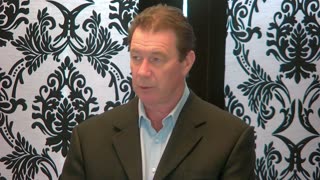 26:23
26:23
The Cross Roads
22 days agoALOR Seminar 2025 - Neville Archibald - The Douglas Social Credit Solutions
315 -
 1:17:57
1:17:57
TheMoreUKnow.net
2 years agoPedo - Out Of The Shadows
430 -
 7:08
7:08
Bannons War Room
2 years agoHeckenlively And Lyons Discuss Inside Perspective Of Covid 19 Task Force
2.72K10 -
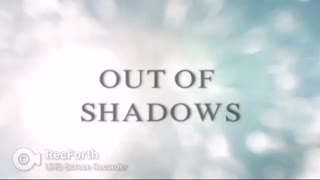 3:21
3:21
KStarockChannel Truth is learned - not told.
2 years agoOUT OF SHADOWS
155 -
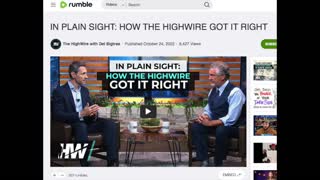 54:02
54:02
Vital Information Tyranny
2 years agoCovid Time Capsule - by The Highwire
12 -
 1:19
1:19
Vigilant Fox
2 years agoGraham Ledger: COVID Retribution Was on the Ballot This Midterm
75 -
 1:17:58
1:17:58
Ryderz
3 years agoOut of Shadows
1172 -
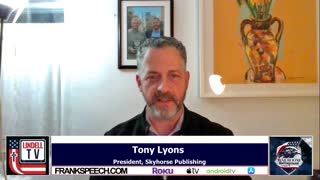 7:59
7:59
Bannons War Room
2 years agoTony Lyons On Skyhorse Publishing Mission To Produce Literature Highlighting Covid Response
5.87K1 -
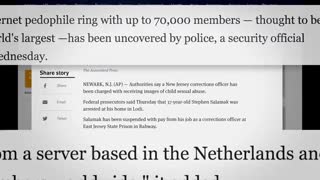 1:17:53
1:17:53
donmar316
3 years agoOut of Shadows
5 -

FreshandFit
3 hours agoAfter Hours w/ Girls
77.4K14